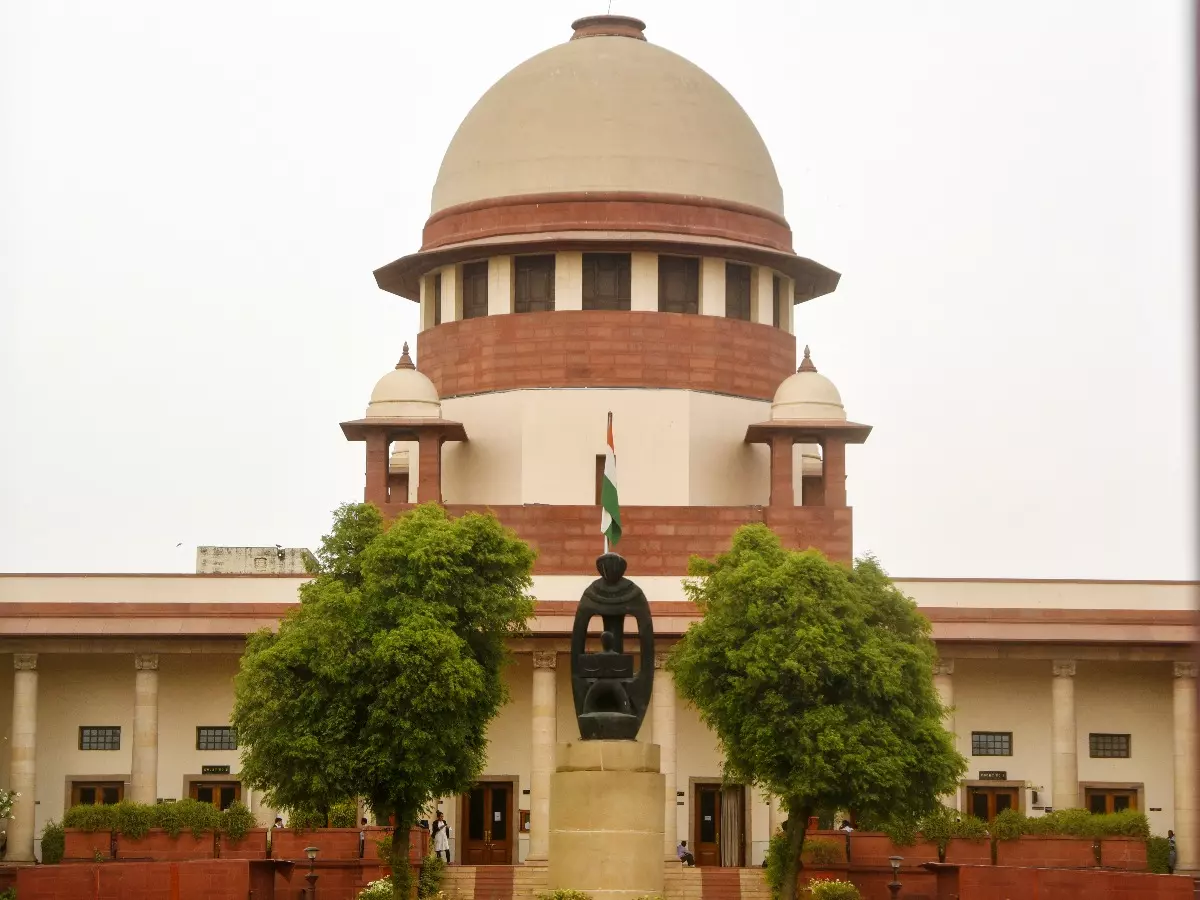Explained: Why Supreme Court Refused To Make Charge Sheets Public
The Supreme Court ruled that a charge sheet or a final investigation report filed in a criminal case is not a "public document" and cannot be made available to the general public for free access. It also stated that doing so would violate the rights of the victim, the accused, and even the investigating agencies.

The Supreme Court ruled that a charge sheet or a final investigation report filed in a criminal case is not a "public document" and cannot be made available to the general public for free access. It also stated that doing so would violate the rights of the victim, the accused, and even the investigating agencies.
 ANI
ANI
Journalist Saurav Das filed a public interest lawsuit (PIL) asking that all charge sheets or final reports be posted on state websites since they are summaries of police investigations in criminal cases. A bench of justices led by MR Shah and CT Ravikumar was hearing the case.
What is a chargesheet?
A charge sheet is a formal police record that includes the names of everyone detained, the specifics of the charges, and the names of the accusers. The charge sheet primarily consists of four parts:
- Information about the accused and the witnesses
- The charges and specifications
- The preferring of charges and their referral to a summary
- For the trial record
In cases that can be heard by lower courts, the charge sheet must be submitted within 60 days of the accused's arrest, and in cases that can be heard by the Court of Sessions, it must be submitted within 90 days. If the charge sheet is filed prior to the passing of 90 days or 60 days, as the case may be, from the date of first remand, no case for grant of bail shall be made under Section 167(2) of the CrPC.
 BCCL/FILE
BCCL/FILE
Once the charge sheet is filed, the option of default bail is no longer available. The First Information Report (FIR), which is the primary document that describes a crime that has been committed, is different from a charge sheet. Typically, a chargesheet refers to one or more FIRs and the accusations made against a person or group for the crimes detailed in those FIRs.
The judicial system's prosecution of the accused begins after the charge sheet has been presented to a court of law.
What were the petitioner's arguments?
The petitioner cited a Supreme Court ruling from 2016 ordering police to upload first information reports (FIRs) 24 hours after they are registered. The petitioner contended that there was a greater need to reveal the contents of a charge sheet, which is the investigation report on those charges, if FIRs, which are unsupported allegations, could be made public.
 Charge sheets do not fall within RTI
Charge sheets do not fall within RTI
The petitioner's advocate, Prashant Bhushan, supported his argument that posting charge sheets on the government website will increase transparency in the criminal justice system by citing provisions of the CrPC, the Evidence Act, and the Right to Information (RTI) Act, 2005.
Bhushan had earlier argued before the court that Section 4(2) of the RTI Act requires public authorities to regularly provide the public with as much information as possible suo motu (on their own).
What did the bench decide?
¡°If all the charge sheets and relevant documents produced along with the charge sheets are put on the public domain or on the websites of the state governments, it will be contrary to the scheme of the Code of Criminal Procedure (CrPC) and it may as such violate the rights of the accused as well as the victim and/or even the investigating agency,¡± the bench said in its judgment.
The bench responded to the claim that the charge sheet is a public record by saying, ¡°On conjoint reading of Sections 173 and 207 of CrPC, the investigating agency is required to furnish the copies of the final report (charge sheet) along with the relevant documents to be relied upon by the prosecution to the accused and to none others.¡±
 Unsplash/Representational Image
Unsplash/Representational Image
It also dealt with Section 74 of the Evidence Act, which defines 'public documents'. ¡°Copy of the charge sheet along with the necessary documents cannot be said to be public documents within the definition of 'Public Documents' as per Section 74 of the Evidence Act...reliance placed upon Section 74 and 76 of Evidence Act is absolutely misplaced,¡± the bench said.
Pertaining to the argument of RTI Act, the bench said, ¡°The reliance placed upon Section 4(2) of the RTI Act is also misconceived and misplaced...Copies of the charge sheet and the relevant documents along with the charge sheet do not fall within Section 4(1)(b) of the RTI Act (which specifies the information to be put in public domain by all public authorities).¡±
